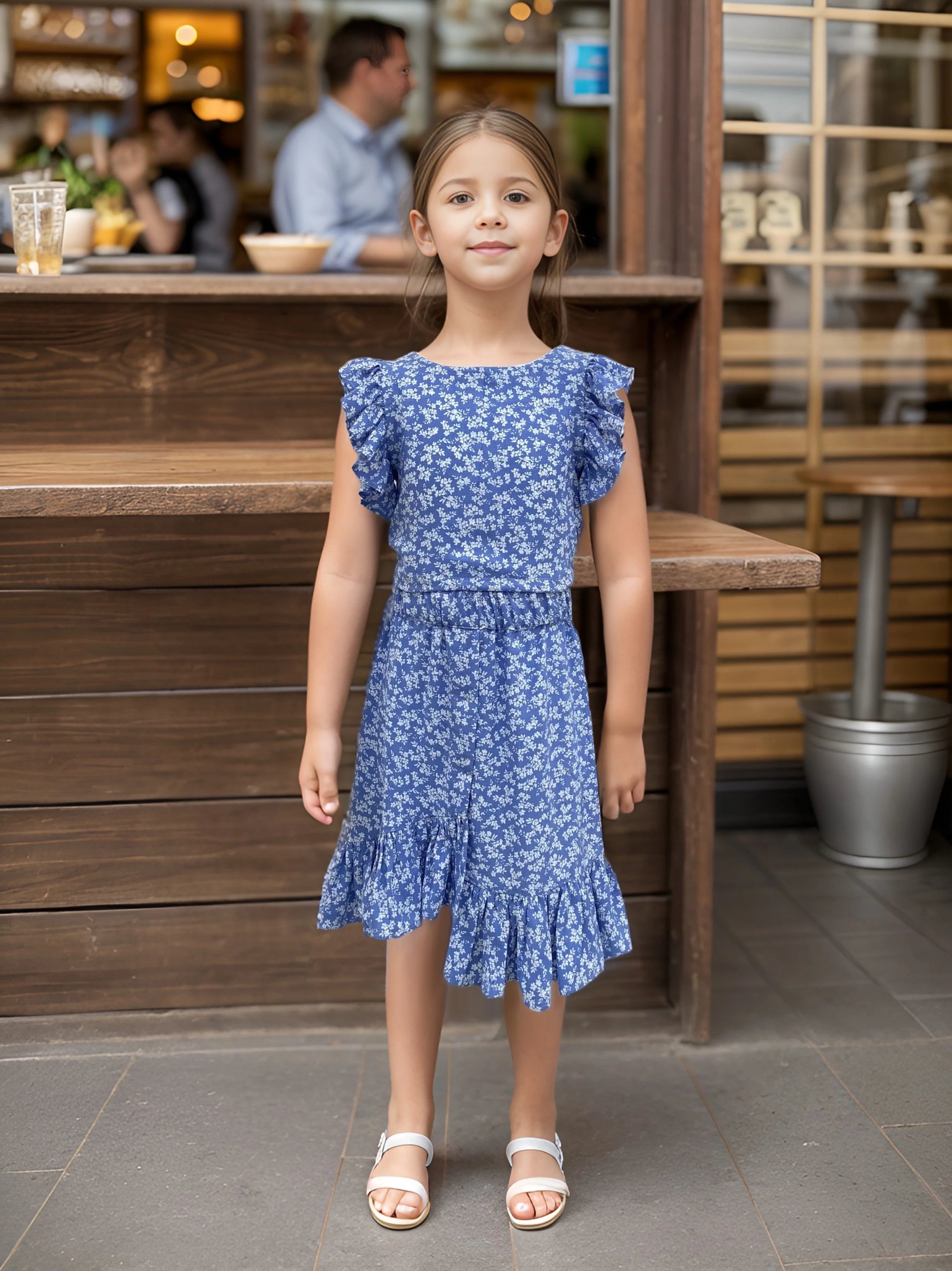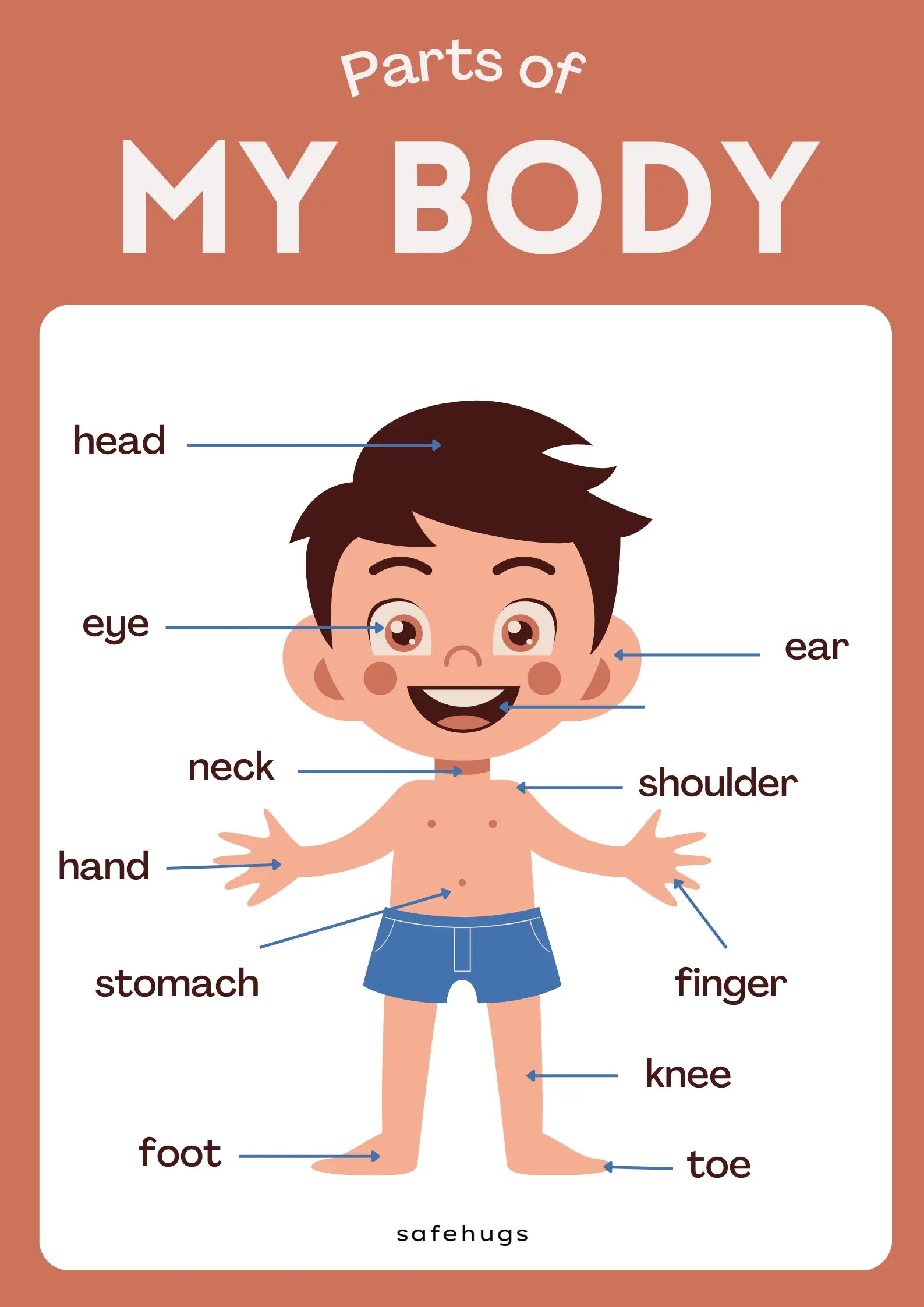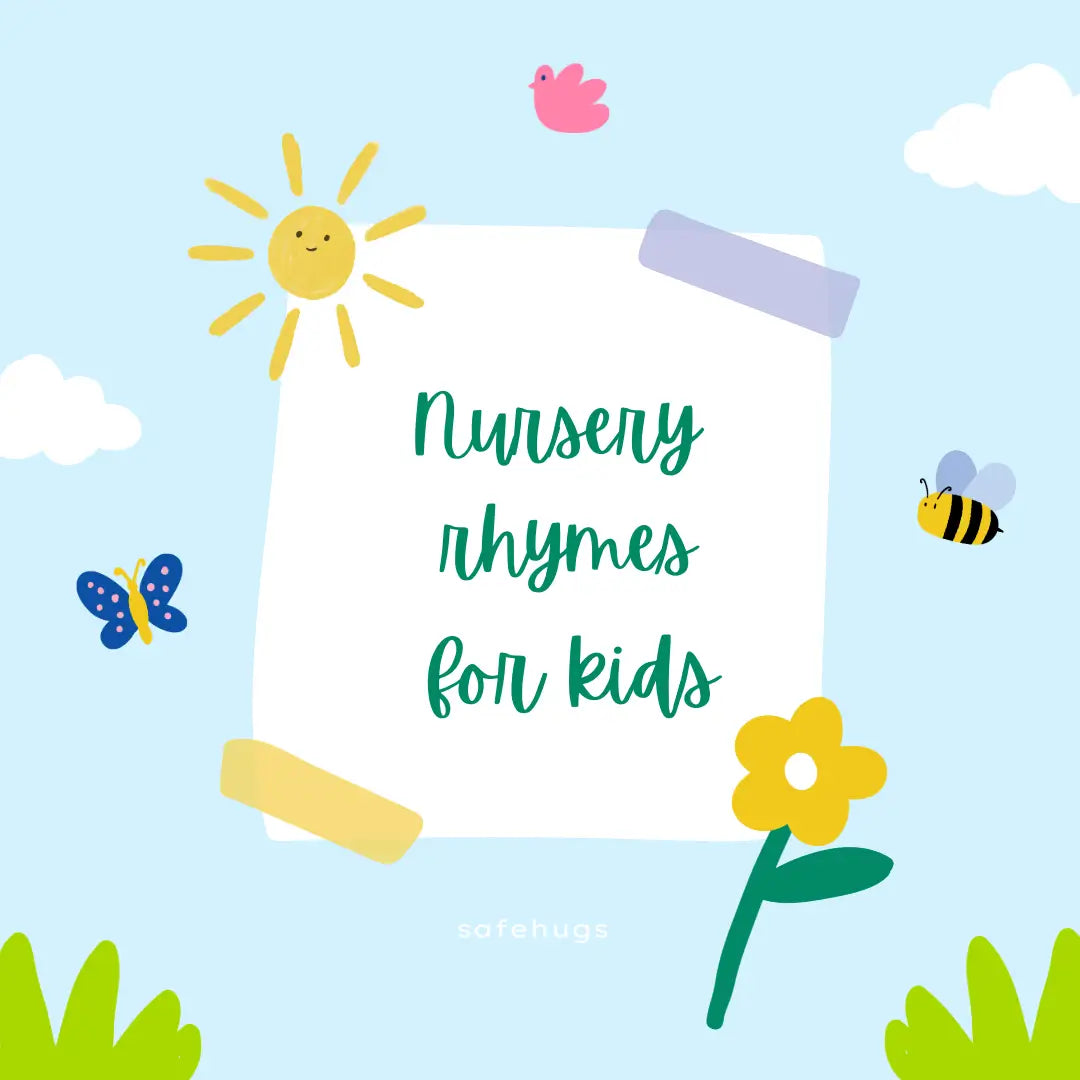100+ Essential Life Skills For Kids
Table of Contents
- Why Life Skills Matter
- Home and Personal Care Skills
- Social and Emotional Skills
- Problem-Solving and Critical Thinking Skills
- Outdoor and Safety Skills
- Academic and Learning Skills
- Responsibility and Time Management Skills
- Environmental Awareness
- Building Character and Values
- Download Our Free Life Skills Checklist!
- FAQs
Give your child the tools to succeed! Discover 100 essential life skills for kids – from personal care to problem-solving – and get a free printable checklist to track progress.
From personal care to problem solving, learning life skills early helps kid develop social, emotional and practical abilities to navigate daily challenges. These essential life skills builds confidence, independence and resilience–preparing them for in school, relationships and beyond!
In this guide, we've compiled 100 essential life skills every child should learn — from personal care to problem-solving — along with practical tips on how to teach them. Plus, you’ll find a free printable checklist at the end to track your child’s progress and make learning easy!
Why Life Skills Matter
Life skills aren’t just about daily tasks–they shape confidence, independence, and emotional strength. Teaching kids how to care for themselves, handle emotions, and solve problems gives them the tools they need to thrive in life.

When kids learn life skills early:
-
They develop problem-solving and decision-making abilities.
-
They build emotional intelligence and social awareness.
-
They learn to cope up with setbacks and disappointments.
-
They grow into confident, independent adults.
-
They develop a sense of responsibility and accountability.
-
They improve their ability to adapt to new situations and challenges.
-
They build resilience, learning how to recover from mistakes and failures.
-
They strengthen their communication skills, learning how to express themselves clearly and respectfully.
-
They learn the value of teamwork and cooperation, improving their ability to work with others.
-
They gain a stronger sense of self-worth and confidence in their abilities.
Ready to give your child the tools they need to succeed? Let's dive into the list!
Glossary :
Life skills - They are the basic skills that help people handle everyday tasks and challenges, like talking to others, solving problems, and taking care of themselves.
Home and Personal Care Skills
A. Basic Household Skills (Suitable for ages 3–5)

Here are some life skills activities for kids that teach responsibility and independence:
-
Make their bed.
-
Fold clothes.
-
Sweep and mop floors.
-
Dust furniture.
-
Organize their room.
-
Set the table.
-
Wipe down surfaces.
-
Water indoor plants.
-
Put toys away after playtime.
-
Separate laundry (lights and darks).
How to Teach:
-
Start small — teach one task at a time.
-
Praise effort, not perfection.
-
Turn it into a game — "Who can fold the most towels?"
B. Cooking and Food Prep Skills (Suitable for ages 4–7)

Basic cooking skills teach nutrition, independence, and responsibility:
-
Make a simple sandwich.
-
Wash fruits and vegetables.
-
Pack a lunchbox.
-
Measure ingredients.
-
Safely use a knife (under supervision).
-
Crack an egg.
-
Spread butter or jam on bread.
-
Mix ingredients in a bowl.
How to Teach:
-
Let them help with meal prep.
-
Encourage creativity (e.g., "Make your own sandwich").
-
Praise their effort even if it’s messy!
C. Hygiene and Personal Care (Suitable for ages 3–6)

Good hygiene is essential for health and self-confidence:
-
Brush teeth properly.
-
Take a shower independently.
-
Clip nails.
-
Comb hair.
-
Wash hands thoroughly.
-
Use tissues properly.
-
Dress themselves.
-
Use the toilet correctly (flush + wash hands).
How to Teach:
-
Create a visual hygiene checklist.
-
Offer gentle reminders.
-
Celebrate milestones (e.g., "You brushed your teeth without being asked!").
Social and Emotional Skills
Strong social skills help kids form healthy relationships and handle conflicts with confidence.
A. Conversation and Manners (Ages 4–8)

Teaching kids how to communicate politely builds respect and confidence:
-
How to introduce themselves politely
-
How to say "please" and "thank you"
-
How to maintain eye contact
-
How to apologize sincerely
-
How to greet someone with a handshake or smile
-
How to listen without interrupting
-
How to respond when someone asks a question
-
How to take turns speaking in a conversation
-
How to say "excuse me" when interrupting or passing by
-
How to give and receive compliments graciously
How to Teach:
-
Use role-play to practice polite conversations.
-
Encourage them to order their food at a restaurant.
B. Conflict Resolution and Empathy (Ages 5–10)

Handling disagreements and understanding feelings strengthens relationships:
-
How to express feelings calmly
-
How to listen without interrupting
-
How to handle disagreements
-
How to help a friend in need
-
How to recognize when someone is upset
-
How to offer comfort and support
-
How to compromise in a disagreement
-
How to walk away from a conflict when needed
-
How to take responsibility for mistakes
-
How to see a situation from another person’s perspective
How to Teach:
-
Ask, "What would you do if…?"
-
Encourage open discussions about feelings.
Glossary :
Empathy - It means understanding and sharing how someone else feels. It’s about putting yourself in their place and feeling what they are feeling.
C. Teamwork and Cooperation (Ages 5–10)

Teamwork teaches kids to collaborate and compromise:
-
How to share and take turns
-
How to work on group projects
-
How to compromise
-
How to support a friend during a challenge
-
How to follow group rules and instructions
-
How to encourage and cheer for teammates
-
How to resolve disagreements within a group
-
How to divide tasks fairly
-
How to accept different opinions
-
How to celebrate group success and effort
How to Teach:
-
Encourage family games and team sports.
-
Praise teamwork and effort, not just winning.
Problem-Solving and Critical Thinking Skills
Critical thinking helps children make smart decisions and solve problems independently.

A. Decision-Making Skills (Ages 5–10)
-
How to weigh pros and cons
-
How to make a simple shopping decision
-
How to decide between options
-
How to ask for advice when unsure
-
How to consider consequences before making a choice
-
How to trust their instincts
-
How to handle peer pressure
-
How to choose between wants and needs
-
How to adjust decisions when things don’t go as planned
-
How to reflect on past decisions to improve future choices
How to Teach:
-
Let them choose between options ("Do you want to wear the red or blue shirt?").
-
Praise thoughtful decisions.
B. Basic Financial Skills (Ages 7–12)

-
How to count money
-
How to save a portion of their allowance
-
How to compare prices when shopping
-
How to create a simple budget
-
How to understand the difference between needs and wants
-
How to track spending
-
How to set savings goals
-
How to make thoughtful purchasing decisions
-
How to calculate change when paying
-
How to avoid impulse buying
How to Teach:
-
Give them an allowance and let them manage it.
-
Encourage goal-setting ("Save ₹500 for a toy").
Outdoor and Safety Skills

Knowing how to handle outdoor situations builds independence and confidence.
-
Cross the street safely.
-
Identify plants and flowers.
-
Handle minor burns or bruises.
-
Recognize dangerous animals and insects.
-
Read and understand basic road signs.
-
Use a map or compass to navigate.
-
Follow hiking or walking trail markers.
-
Stay safe near water (pools, lakes, and beaches).
-
Respond appropriately if they get lost (e.g., find a safe adult).
-
Understand basic fire safety rules (e.g., stop, drop, and roll).
How to Teach:
-
Practice crossing the street together.
-
Explain why safety rules matter.
Academic and Learning Skills

Learning how to learn is just as important as learning itself.
-
Summarize a story.
-
Measure ingredients.
-
Solve math problems.
-
Tell time on an analog clock.
-
Spell common words correctly.
-
Write a short story or personal essay.
-
Identify patterns and sequences in numbers.
-
Follow multi-step instructions accurately.
-
Use a dictionary or online search engine to find information.
-
Memorize multiplication tables.
How to Teach:
-
Encourage reading together.
-
Use baking and shopping to teach math.
Responsibility and Time Management Skills

Balancing work and play helps kids stay organized and focused.
-
Create a morning and evening routine.
-
Follow a school schedule.
-
Manage distractions while studying.
-
Complete homework and assignments on time.
-
Pack their school bag the night before.
-
Keep their bedroom clean and organized.
-
Prioritize tasks based on importance and deadlines.
-
Use a calendar to track events and deadlines.
-
Plan and pack for school or outings independently.
How to Teach:
-
Create a visual schedule.
-
Use a reward chart for completed tasks.
Environmental Awareness

Teaching kids to care for the planet builds lifelong responsibility.
-
Sort recyclables.
-
Turn off lights when leaving a room.
-
Conserve water while brushing teeth or washing hands.
-
Use reusable bags and water bottles.
-
Reduce food waste by planning meals and saving leftovers.
-
Compost food scraps.
-
Clean up litter during walks or park visits.
-
Grow and care for a small plant or garden.
-
Understand the importance of reducing plastic use.
How to Teach:
-
Make recycling a family activity.
-
Praise eco-friendly choices.
Building Character and Values

Kindness, honesty, and integrity shape how kids treat others and make decisions.
-
Tell the truth.
-
Apologize when wrong.
-
Offer help without being asked.
-
Respect different opinions and perspectives.
-
Stand up for someone being treated unfairly.
-
Keep promises and commitments.
-
Share and take turns.
-
Show gratitude by saying "thank you."
How to Teach:
-
Praise honesty and accountability.
-
Encourage helping others.
Download Our Free Life Skills Checklist!
Make learning life skills easy and track progress with our free printable checklist.
Download our Progress Tracker to check your child progress!
Teaching life skills helps children develop confidence, independence, and patience. Start small, build consistency, and celebrate progress. Over time, these skills will prepare them to handle life’s challenges with confidence.
Related:
- Explore our blog on Indoor & Outdoor hobbies for kids.
- Explore our blog on Fun & Easy DIY Crafts for Kids to try at Home.
- Check out our blog on STEM projects for school kids.
- Check out our blog on Fun Learning Activities to do with 2 Year Olds at Home.
FAQ'S
1. What are the most important life skills for kids?
The most important life skills include personal care, decision-making, and emotional regulation. Teaching kids how to care for themselves, make thoughtful choices, and manage their emotions helps them grow into confident and capable individuals.
2. What’s the best way to teach life skills?
The best approach is to lead by example, give clear instructions, and use positive reinforcement. Kids learn by watching adults, so demonstrating life skills in daily life is key. Offering simple and clear guidance while encouraging and praising their efforts builds confidence and helps them retain these skills.
3. When should I start teaching life skills?
Start as early as age 3 with simple tasks like organizing toys, washing hands, and helping with small household chores. Early exposure to responsibility helps kids develop independence and problem-solving skills over time.
4. How can I teach life skills to my child at home?
Teaching life skills at home can be as simple as involving your child in daily routines. Let them help with cooking, setting the table, and cleaning up. Encourage them to make choices and find solutions to problems, and use play-based learning to make it fun and engaging.
5. What’s the best way to encourage independence in kids?
Encouraging independence means giving kids age-appropriate responsibilities and allowing them to make decisions. Let them learn from mistakes without stepping in too quickly. Offering guidance and support while allowing them to figure things out on their own helps build confidence and resilience.


































